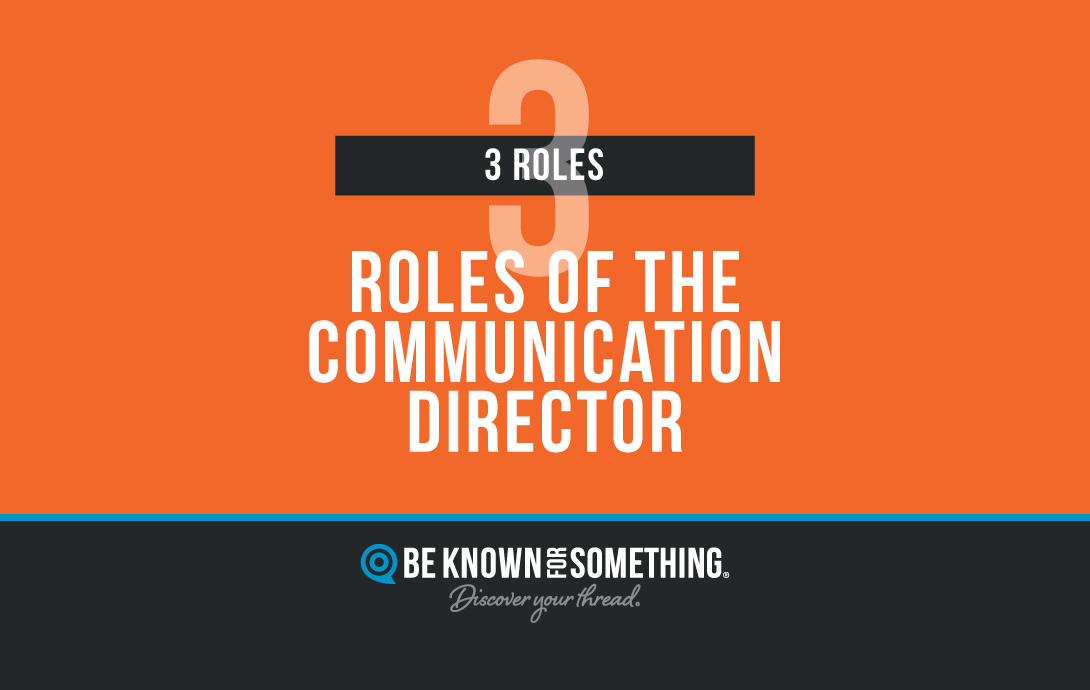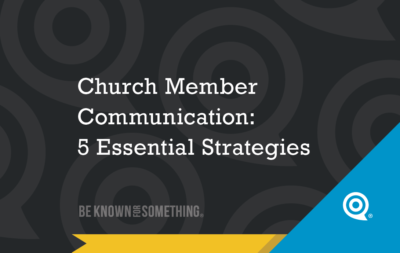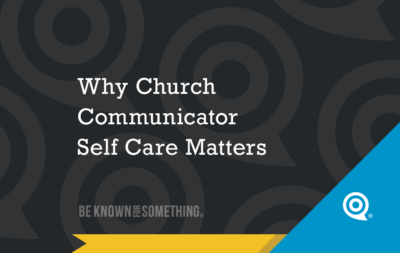3 Roles of the Communication Director (paid or volunteer)

Often roles of the communication director are discussed when communication goes wrong or the congregation isn’t aware of what’s going on. Even more importantly, when your community is ignoring ministry activity that should interest them.
If the budget allows, it’s certainly worth hiring a part-time or full-time communication director to tackle this challenging job. Times have changed, with increased channels, tools, and noise that need addressing with professionally crafted messaging that works well with systems. Most average-sized churches can easily keep someone busy with needed work.
Don’t have a budget? Then you can search within your congregation for someone willing to help. But, honestly, the amount of work, standards, and requirements, demand a lot on a volunteer. Well played, the foundational roles of the communication director can be fulfilled by a volunteer with the proper oversight.
Here are the 3 roles of the communication director that encompass most day to day tasks:
- Support. The communication director is a support role that has the ability to lead. They ultimately support the church leadership with an expertise of crafting and fine-tuning content all while being allowed to lead their communication area. They need to make decisions on the fly while representing individual Pastors and advocating for audiences (community and congregation). The perfect candidate for this role exhibits true servant leadership.
- Empower. Of the roles of the communication director, this one is critical. This often thankless job can be all-consuming because of the many components: sermon slides, content for social media channels (that’s demanding 7/24), an ever-changing website with SEO (search engine optimization) standards, print materials (bulletin, stationery, banners, etc.) needing up-to-date, relevant content written, designed, and edited. Then they must regularly meet with Pastors and ministry leaders to retrieve information, clarify changes, and following up after events. Whew! That’s a lot. It’s difficult to do it all alone. That’s why, with a ministry heart, they need to empower others to get it all done. From gently educating leaders how to supply content, to helping a volunteer social media team with posts.
- Enable. There are risks when you have a communication director. When doing their job well, they must limit voices and promotion. Everyone can’t have a loud voice or it contributes to the noise which causes people to ignore the content. On the road to forming messaging to meet SEO and branding standards, they can easily become the “Pastor of No”. But in the proper servant leader role of the communication director, they MUST enable ministries to do effective work and not restrict it. That doesn’t mean they give in to unreasonable demands; instead, they need to use their leadership to do their job well while educating better ways. Be sure to hire a positive person with a “can-do” attitude!
Want 25 Game-Changing Resolutions?
Related Posts

Church Welcome Video Tips Every Pastor Should Use
Your church welcome video is often the first message people experience before they ever step into your building. Long before

Church Member Communication: 5 Essential Strategies
When someone decides to join your church, your communication becomes more than information; it becomes discipleship. Too often, well-meaning churches

Why Church Communicator Self Care Matters
Church communicators are often the quiet carriers of pressure. You’re shaping messages, managing platforms, responding to urgency, and translating vision


